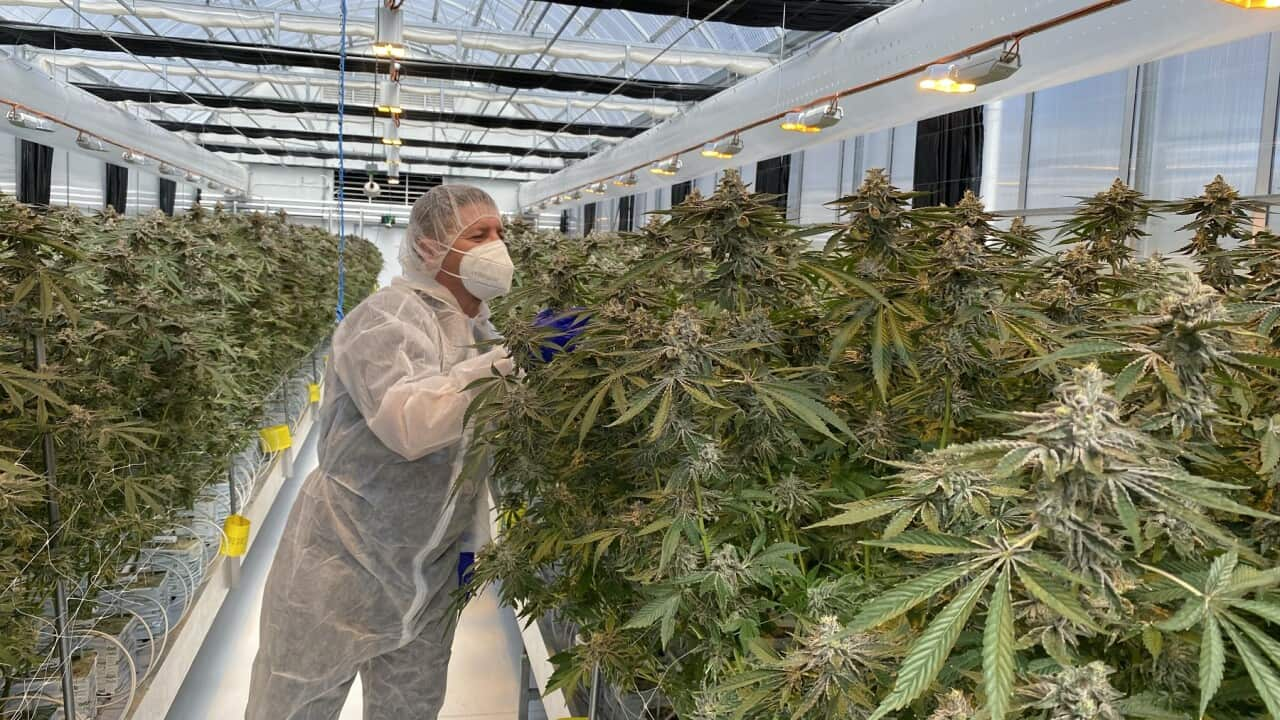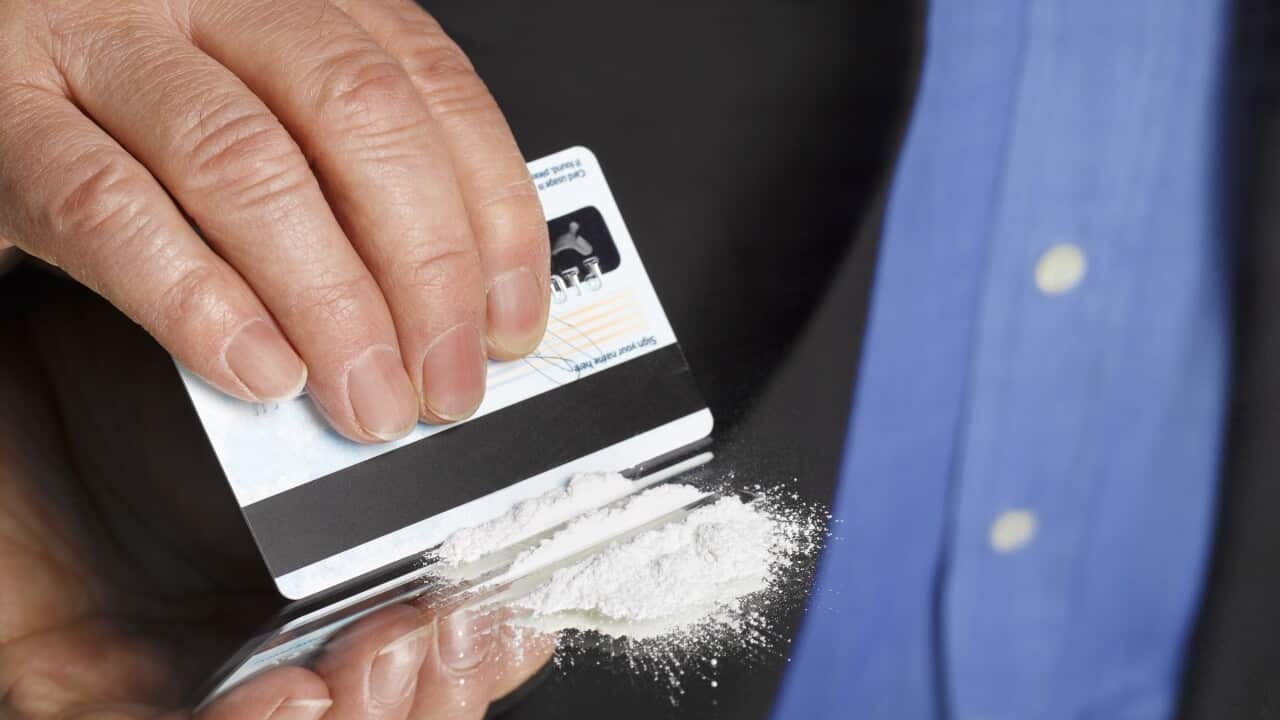Key Points
- The Victorian government is exploring the possibility of a more nuanced approach to cannabis testing.
- Workplace and roadside drug-testing can be unreliable, and may detect THC long after its effects have worn off.
- Experts want a more sophisticated system that measures the extent to which a person is impaired.
The Victorian government is looking at whether there's a better way to manage the use of medicinal cannabis in the workplace, as experts flag concerns around the reliability and lack of nuance in Australia's zero-tolerance approach to drug testing.
First legalised in Australia in 2016, medicinal cannabis is now used by hundreds of thousands of people across the country.
Drug-testing systems on the roadside and in the workplace, however, can cause complications for medicinal cannabis users — irrespective of whether they're impaired by the drug.
Zero tolerance for cannabis in system
The Victorian parliament is now considering how to address this problem, with Legalise Cannabis Victoria MP David Ettershank saying there needs to be a more nuanced approach to cannabis testing.
"Workers should not be impaired and cause a risk to others, just as cannabis users should not be on the road if they're impaired and posing a risk to other drivers and pedestrians," Ettershank told SBS News.
"Clearly in many cases what's actually happening is that it's not about health and safety at the workplace, it's actually imposing a zero-tolerance approach to the presence of THC (the main psychoactive component of cannabis) in people's systems, irrespective of whether or not they're impaired. And that's what we have the big issue with."
Workplace drug testing is most common in safety-sensitive industries such as mining and transport, where drug impairment could pose a real danger to either the individual or those around them.
But authorities' strict approach to cannabis intoxication can also affect medicinal users outside the safety-conscious industries, through systems such as roadside drug testing.
Australia's zero-tolerance legislation regarding cannabis use states that it is an offence to drive while THC is present in one's blood, oral fluid, or urine.
The problem with illicit drug testing, according to some experts, is that it doesn't account for the wide window during which a person can test positive for drug intoxication without being impaired.
This is especially true of cannabis, which stays in a person's system longer than most drugs.
Unreliable tests for cannabis
Danielle McCartney, a postdoctoral research associate at the University of Sydney's Lambert Initiative for Cannabinoid Therapeutics, explained that oral fluid tests are particularly unreliable. They may not detect THC that's been ingested in certain forms, such as capsules, or may detect THC in a person's saliva regardless of whether they recently ingested it or are impaired by its effects.
Blood and urine tests have their own complications, McCartney added, such as inaccurate readings or positive results weeks after use.
"At present, there is there is no perfect system," she told SBS News.
"The roadside drug tests have limitations, the field sobriety tests or 'behavioural tests' also have limitations … What we're hoping to work towards is a better behavioural test using more tech [and] things like computerised cognitive tasks."
"You need some kind of behavioural metric that is very consistent from one individual to the next and isn't impacted by too many other things," she added.
Dr Karen Broadly, a volunteer with the Drug Advisory Council Australia, said that although a positive test doesn't necessarily equate to impairment, it's a risk some industries can't afford to take.
"We don't know whether [a positive test] means they're impaired, we don't know when they used [cannabis], but given all of the unknowns and given the risks, we need to prioritise occupational health and safety," she told SBS News.
"This is not about us judging people; they have the right to go to their doctor, use whatever they need to use and be prescribed whatever they need to deal with their health issues … It's really about the fact that [in] some workplaces or work types we just can't tolerate those risks."
A need for change
Ettershank wants to see cannabis treated in a similar way to other medicines, noting that impairment from THC is comparable to that of other prescription drugs.
"When you look at the table of harms or when you look at the scale of impairment, the reality is that cannabis is pretty low down. So it's perfectly fine to go to work legally with opioids, with benzodiazepines and antidepressants, even with antihistamines — [but] all of those things are far more impairing than THC," he said.
"For all of the other drugs, we say that the relationship between the patient and the doctor is an appropriate test to ensure safety whether it's at the workplace or whether it's on the road, except for cannabis."
The Australian Federal Police Association (AFPA) acknowledges there are limitations to the current testing regime.
AFPA president Alex Caruana told SBS News while it may be clear to an officer that a driver is impaired, they have limited powers to stop them continuing to drive unless the motorist produces a positive result on a roadside drug test.
"The whole reason we are drug testing people on the side of the road is to test whether they're impaired, and therefore they are posing a threat to the safety of other members on the road," Caruana said.
“I think the science needs to catch up, or the legislation needs to catch up there, and there needs to be a more robust way to test if some is inebriated or impaired."












